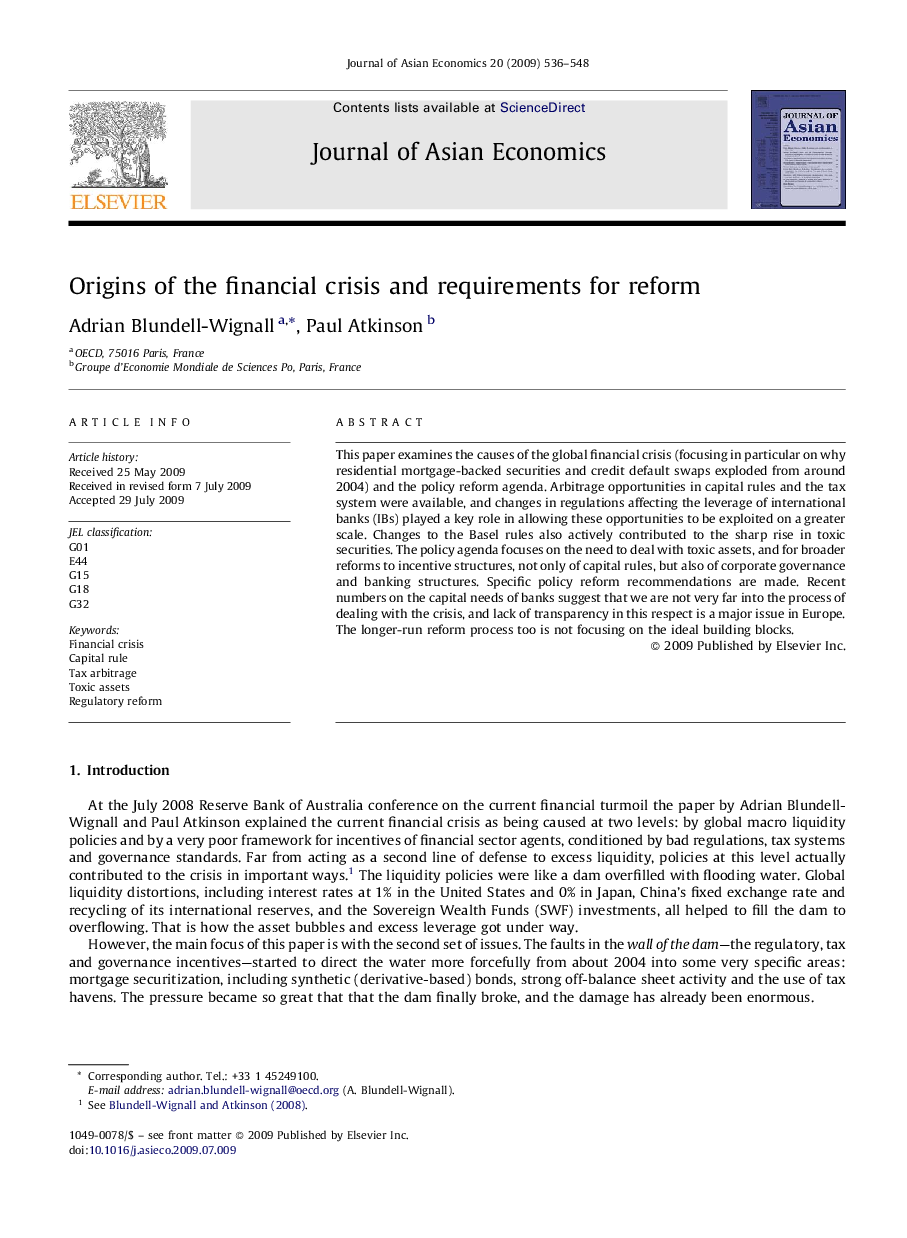| Article ID | Journal | Published Year | Pages | File Type |
|---|---|---|---|---|
| 5087680 | Journal of Asian Economics | 2009 | 13 Pages |
This paper examines the causes of the global financial crisis (focusing in particular on why residential mortgage-backed securities and credit default swaps exploded from around 2004) and the policy reform agenda. Arbitrage opportunities in capital rules and the tax system were available, and changes in regulations affecting the leverage of international banks (IBs) played a key role in allowing these opportunities to be exploited on a greater scale. Changes to the Basel rules also actively contributed to the sharp rise in toxic securities. The policy agenda focuses on the need to deal with toxic assets, and for broader reforms to incentive structures, not only of capital rules, but also of corporate governance and banking structures. Specific policy reform recommendations are made. Recent numbers on the capital needs of banks suggest that we are not very far into the process of dealing with the crisis, and lack of transparency in this respect is a major issue in Europe. The longer-run reform process too is not focusing on the ideal building blocks.
